On the fifth day of our trip to northern Vietnam, we traveled from Ha Long Bay to Sapa. We planned to visit the must-see attractions in Sapa, which include Fansipan and Cat Cat Village. It was a seven-hour-long road trip. We spent most of the time sitting in the coach, relaxing, gazing out the window, enjoying the scenery, and making stops for lunch and toilet breaks.
When we arrived in Sapa, it was already night. After checking in to Highland Resort, we had dinner at the hotel’s restaurant.

Fansipan
After breakfast, we headed to Fansipan, one of the must-see attractions in Sapa. Our guide assisted us in purchasing the round-trip tickets for the cable car, which included the fare to the top of the hill and a lunch buffet at the lower station.
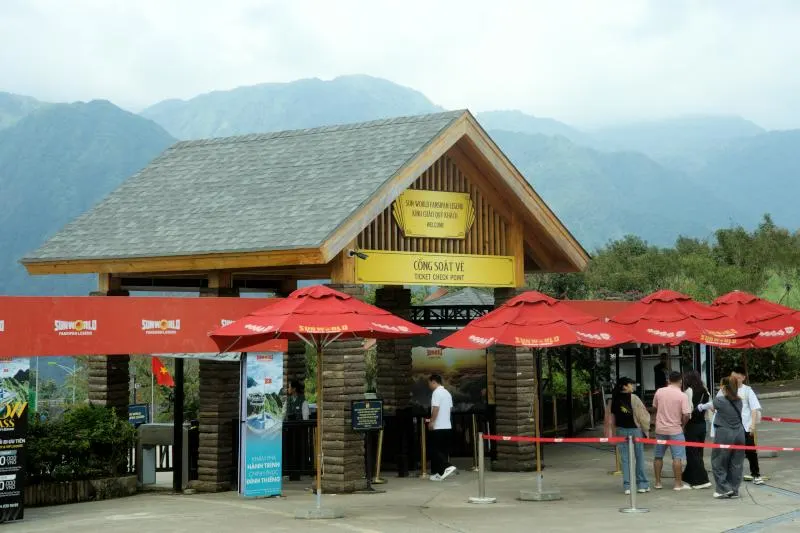
The ticketing counter and the cable car boarding platform were ten minutes away. Sun World Fansipan Legend is the prominent tourism company in Vietnam that manages this place. It is a well-maintained area, like a garden, which features sample houses of different ethnic groups, where we could take photos and purchase souvenirs.
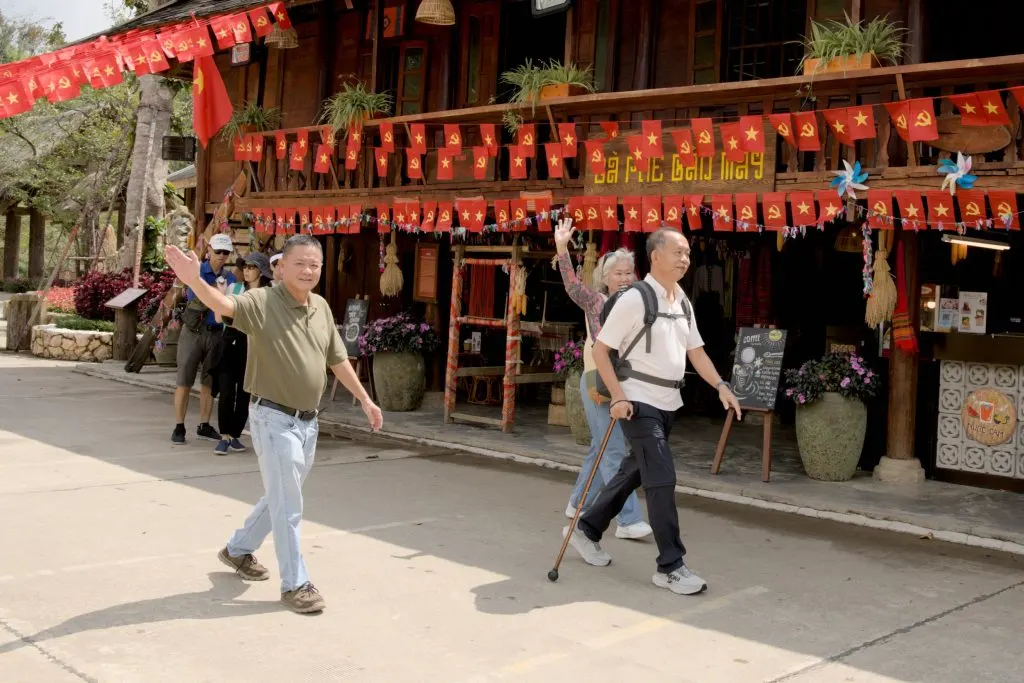
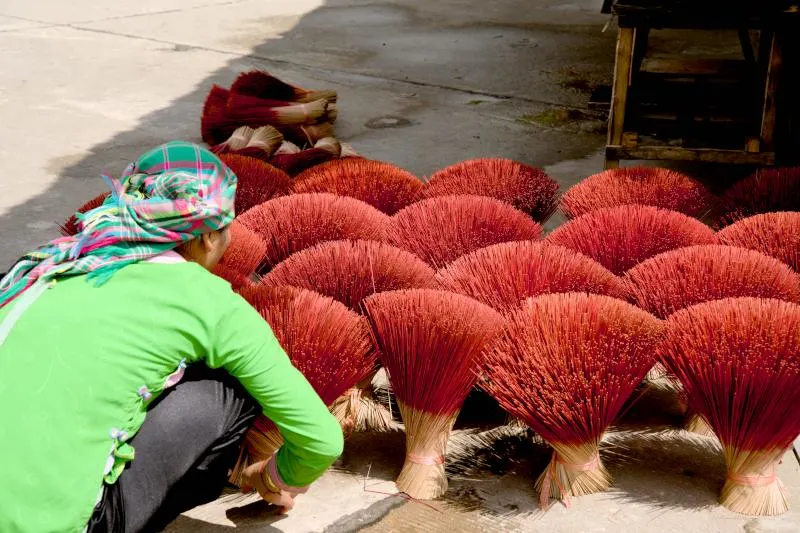
The cable car can accommodate 20 people and takes about 15 minutes to reach the top. The scenery on the way up is stunning, starting with a view of lovely rice fields in the valley.
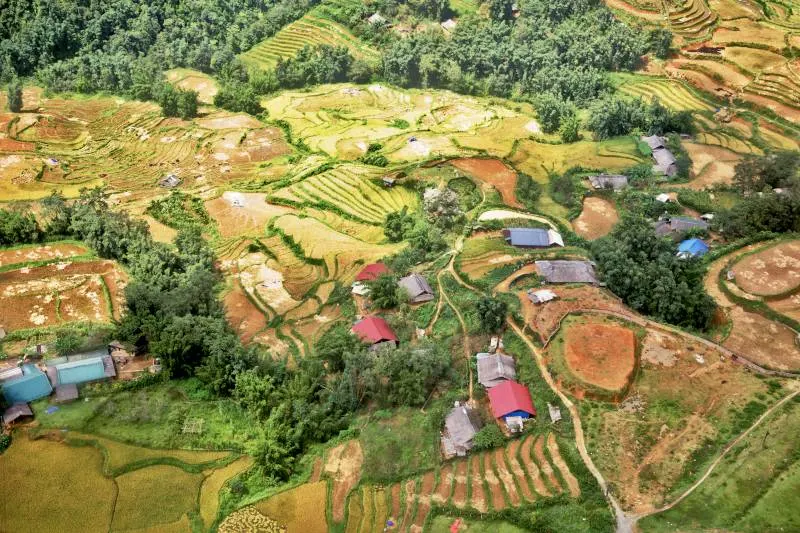
Further up, the landscape changes to mountains and forests, and we even spot a few waterfalls. The weather started turning misty and much cooler as we approached the top.
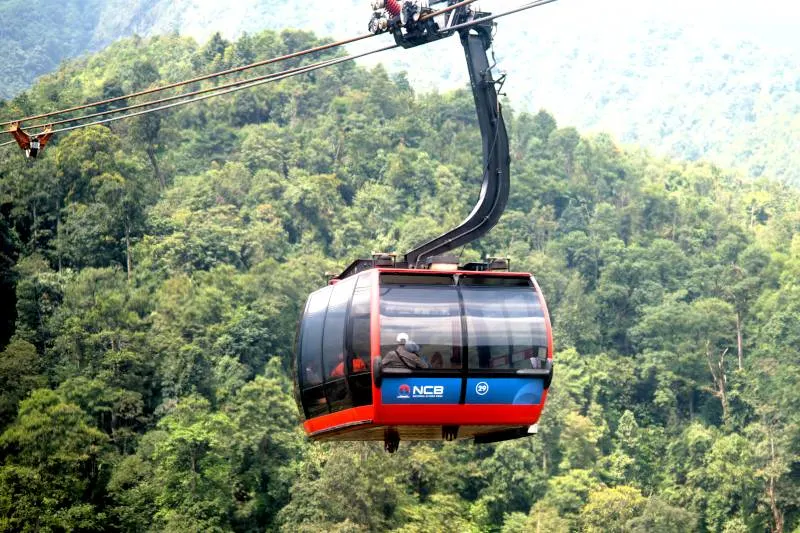
After arriving at the upper station, we alighted from the cable car and walked through a building complex that is a food court. Eventually, we emerged from the building and were greeted by a misty mountain view, and we could hardly see much detail.
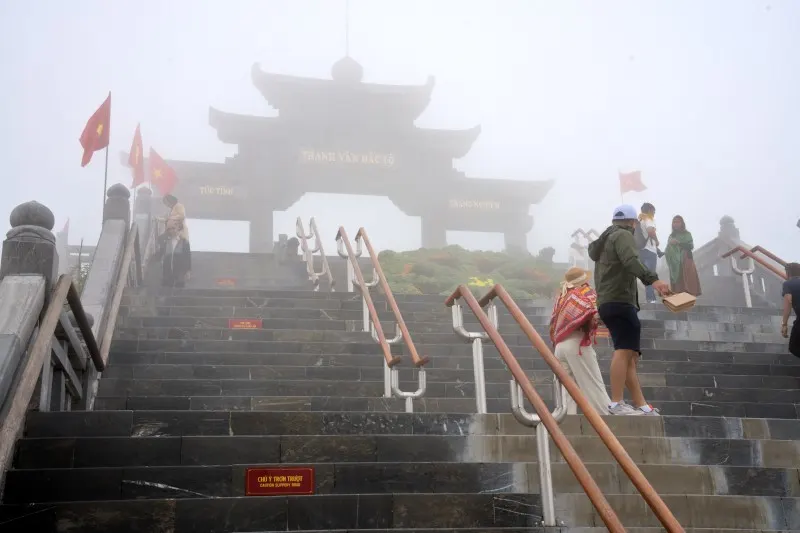
As we walked up the stairs, we passed by many Buddhist temples. Since we didn't understand Vietnamese, we couldn't provide the names of each temple and the deities inside. No one guarded the temples, and everyone was free to enter.
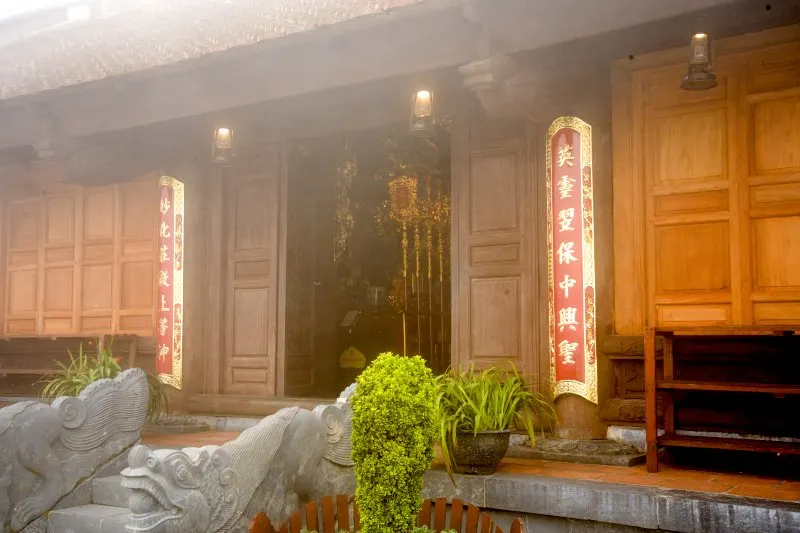
To reach the top of the mountain, we had two choices: walk up or take the funicular train. We took the funicular train in which the fare was inclusive, which only took about a minute to reach the top.
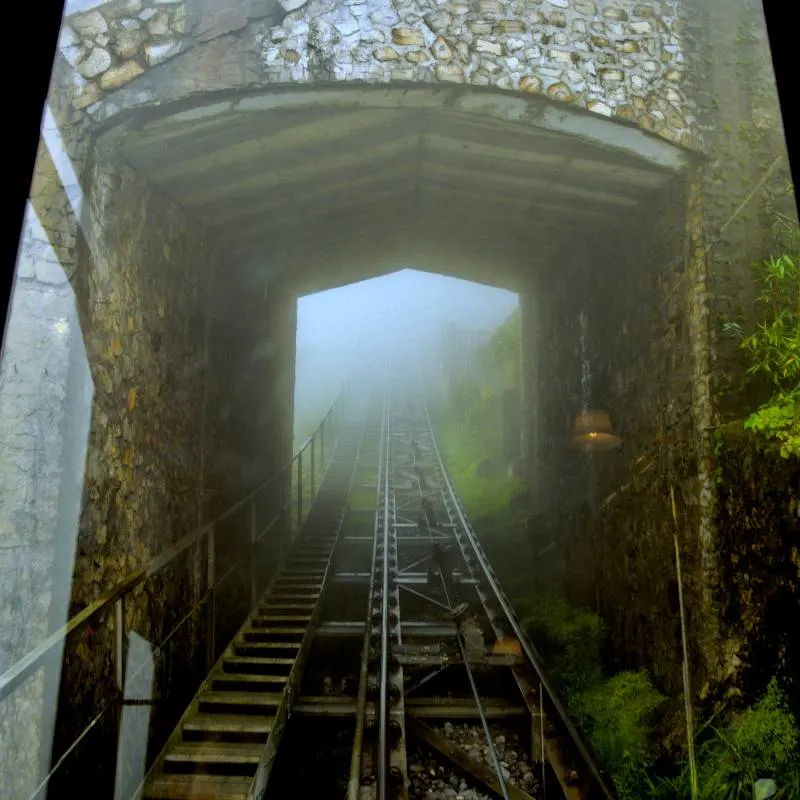
At the top of the mountain is a flag pole, the highest point of Fansipan, measuring 3143 meters above sea level. It was still very misty, but we did our best to take some photos for remembrance. The mist provided a different view than if the sky was blue and clear; it added some mystery and coolness that I anticipated at such a high altitude.
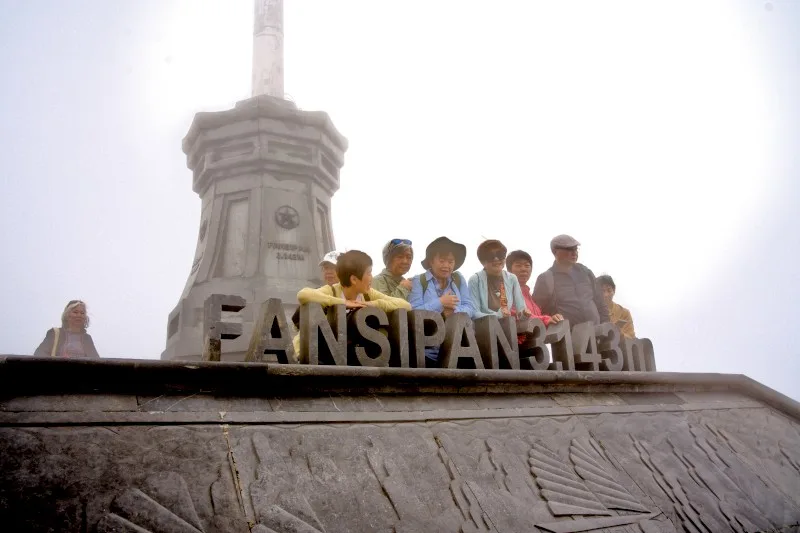
Based on the advice of a local we met, we chose to walk instead of taking the funicular train to descend. We were told about a giant Buddha statue we could visit. Although the Buddha statue was hardly visible due to the mist, we did come across the Kuan Yin statue.
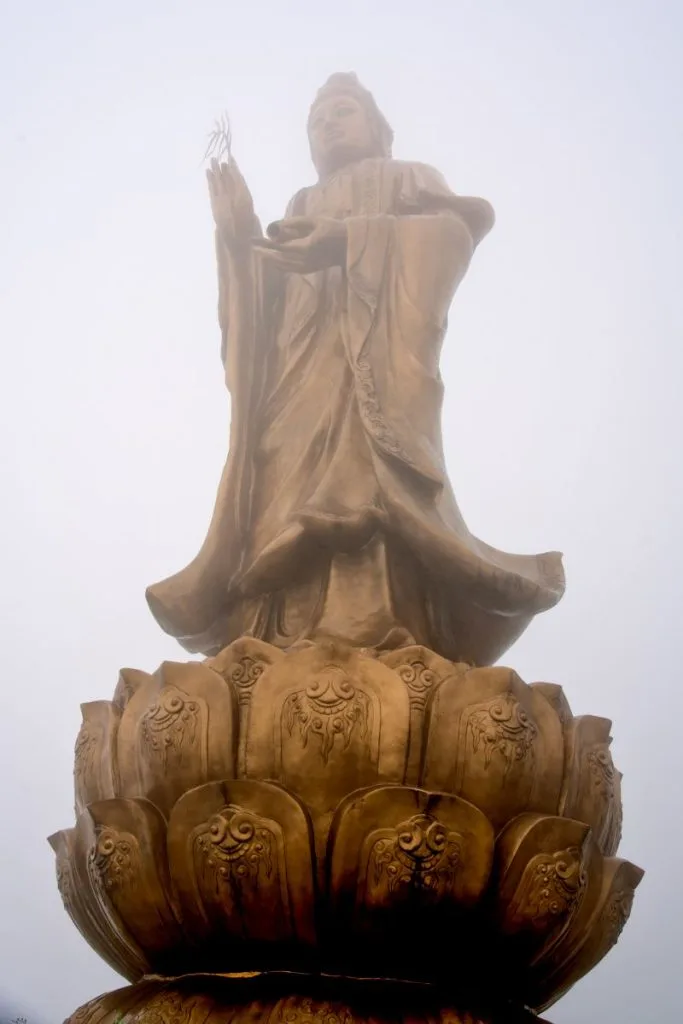
If you're a Buddhist, Fansipan is a place you'd enjoy. However, it feels a bit too touristy. I prefer to hike up to Fansipan, which would take a few days, as I enjoy hiking. If you're interested in hiking, you can check out my previous articles about our experience hiking to Annapurna Base Camp in Nepal.
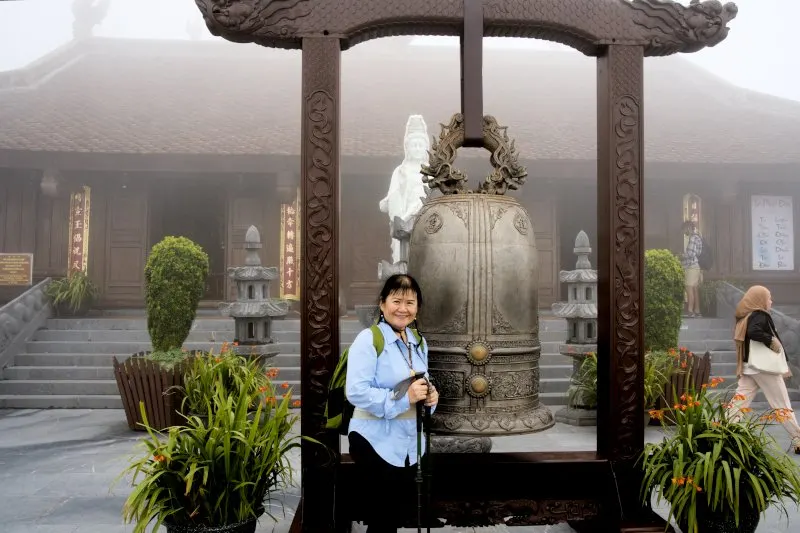
So we returned to the foothill and enjoyed our lunch at the restaurant. It was an elaborate buffet with primarily local food, and we thoroughly enjoyed it after a long day of walking on a hungry stomach.
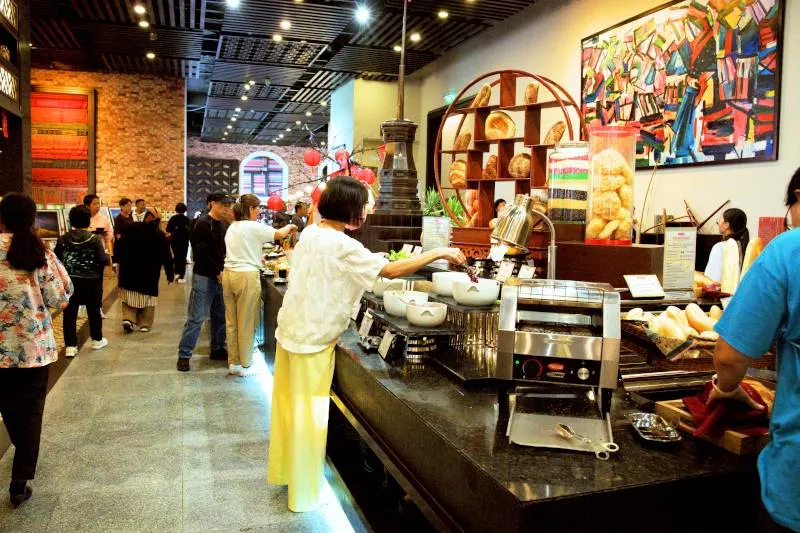
Cat Cat Village
The weather forecast predicted the Yagi typhoon would hit Hanoi directly and approach Sapa tomorrow. Therefore, we decided to visit the second must-see attraction in Sapa, Cat Cat Village, today instead of the following day in case the typhoon also hit Sapa.
We took a small van to a place where we had to switch to an electric car to reach the entrance of Cat Cat Village.
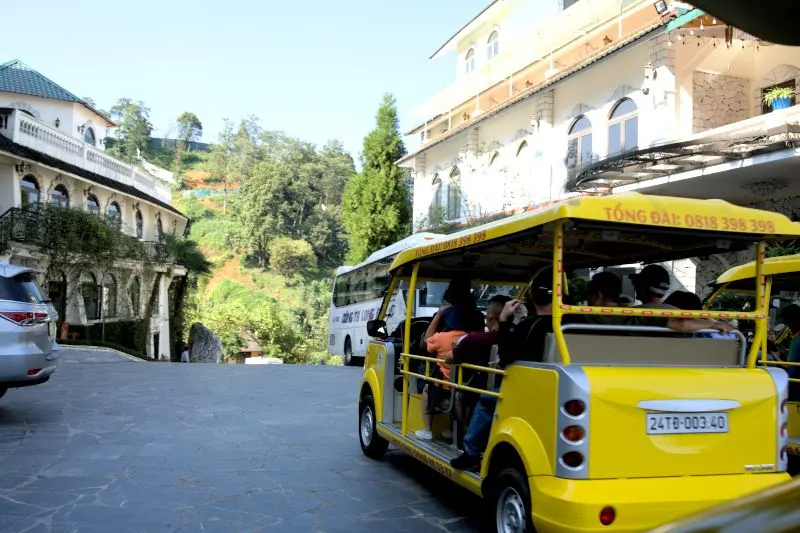
Cat Cat Village is mainly inhabited by the H'mong ethnic community, especially the Black H'mong. The village is well-known for its unique traditions, ancient handicrafts, and stunning natural landscapes. About 80 Black H'mong households live in the village, and the community is closely-knit, with families often living near each other on the mountain slopes. The traditional houses in the village are built using wood and stone.
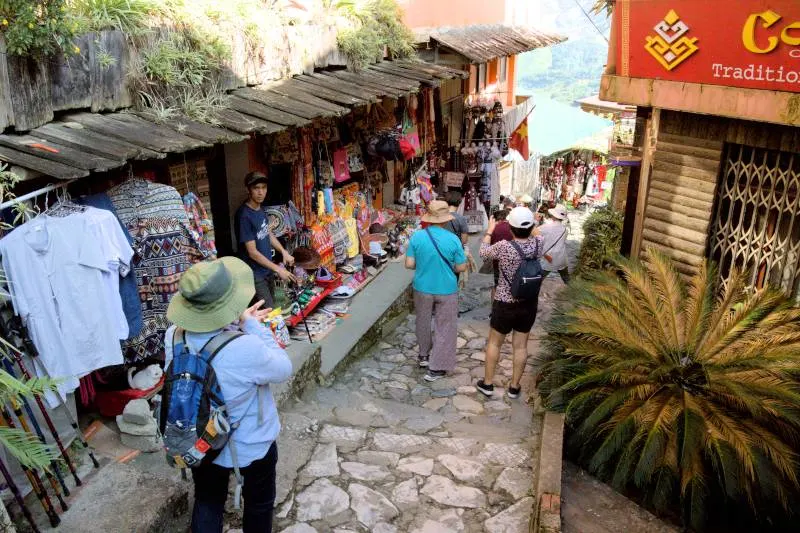
However, what we saw did not match the image in our minds. It doesn't look like a traditional village. It's more like a flea market, with rows of stores on both sides selling various things, from souvenirs to street food, clothes, toys, and even some food stalls.
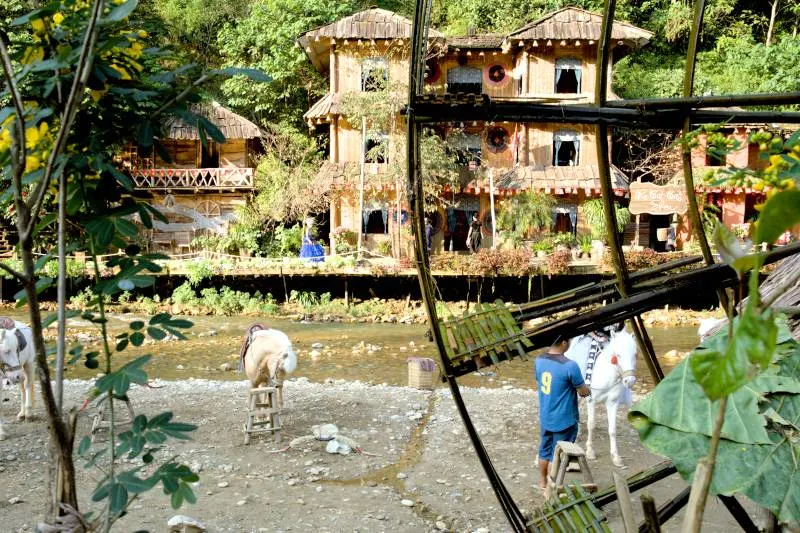
Our guide mentioned that the place has become more developed and is too commercialized. It may have lost some of its original charm, but traces of authenticity remain as we stroll through the village.
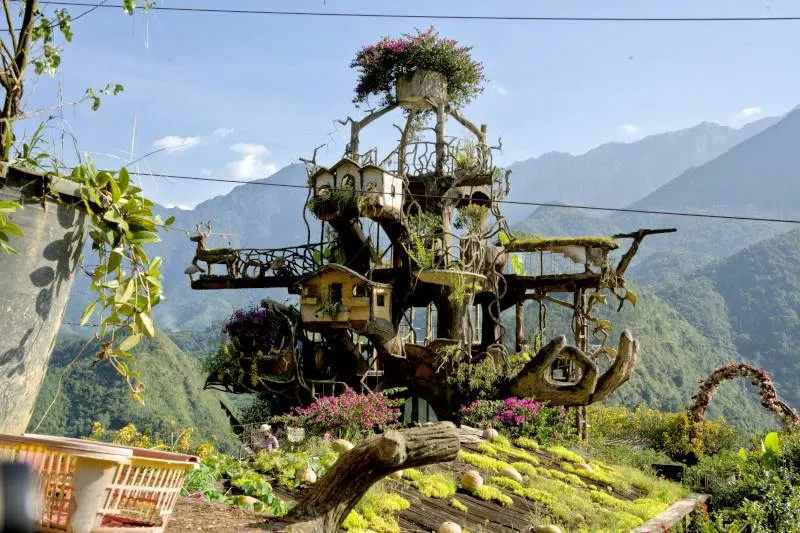
A few viewpoints provide panoramic and beautiful views of the mountains.
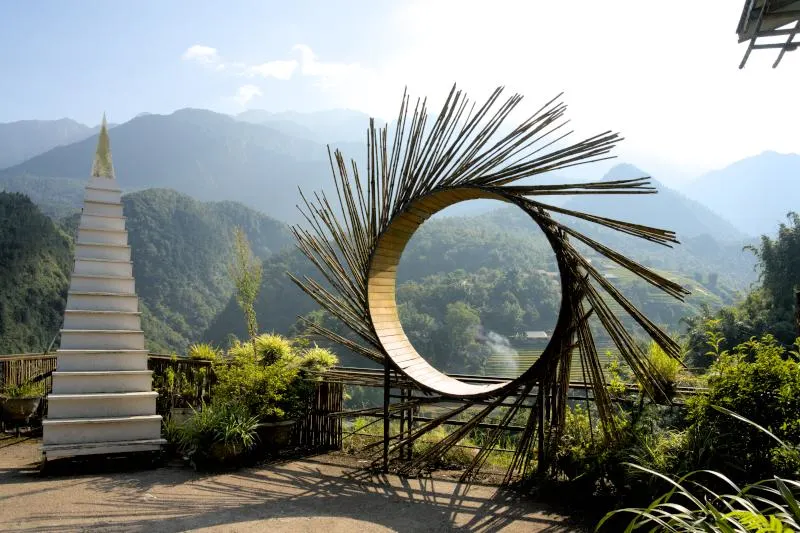
We also had an opportunity to take photos with local families, and they kindly obliged.
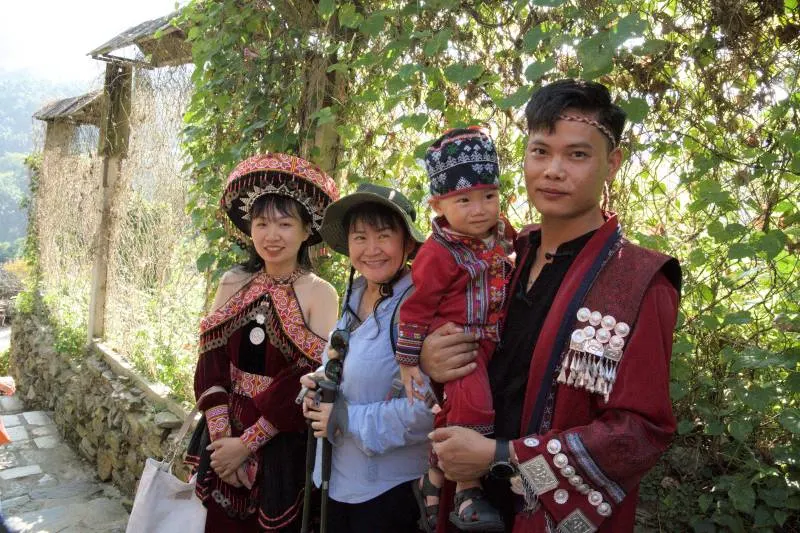
Cat Cat Village has a one-directional street, meaning you must enter from one end and exit the village from the other.
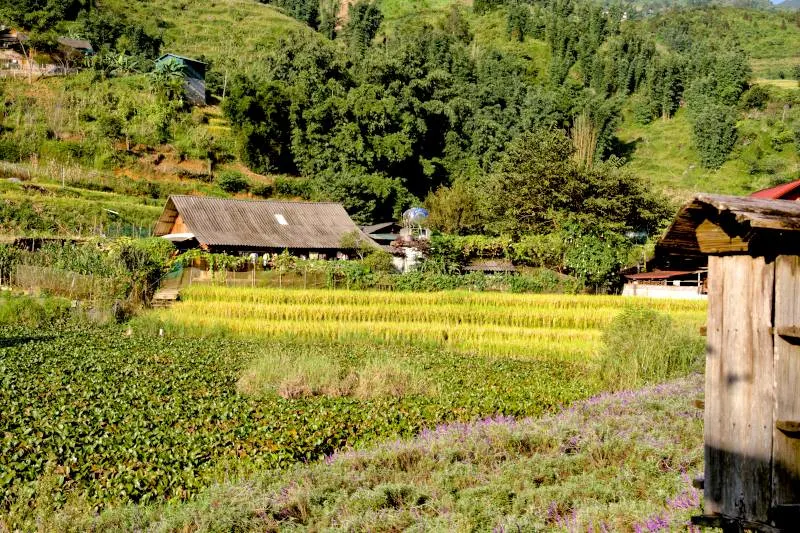
The second part of this village is more interesting, as it features the Cat Cat waterfall.
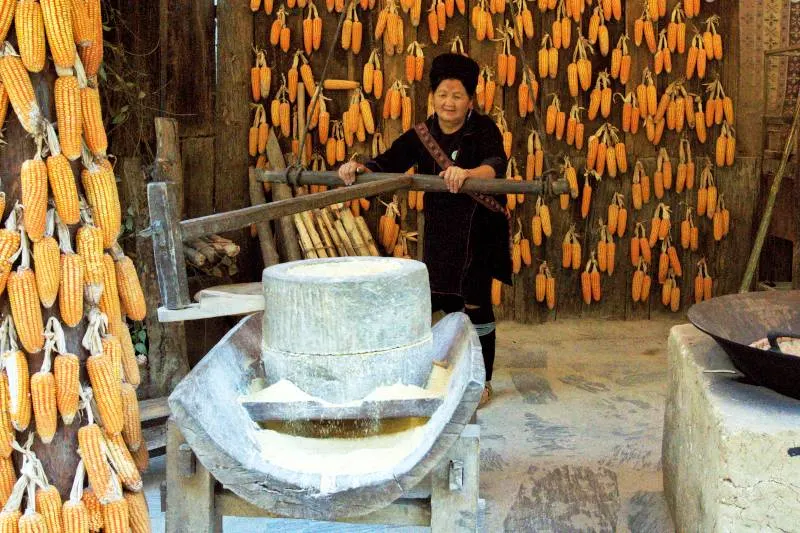
The Cat Cat Waterfall, also known as Tien Sa Waterfall, is located at the base of the Hoang Lien Son Mountain Range. The waterfall showcased its strong flow as we were greeted by the soothing sounds of the swiftly flowing water.
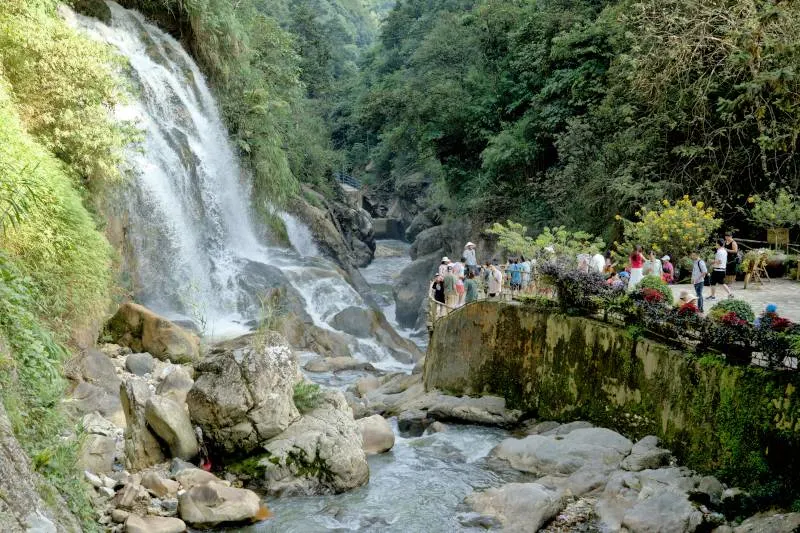
We took some photographs at the waterfall and walked across the Love Bridge. You can rent a local costume to walk around and take photographs. It is a place where you can take beautiful photographs, especially for special occasions like weddings.
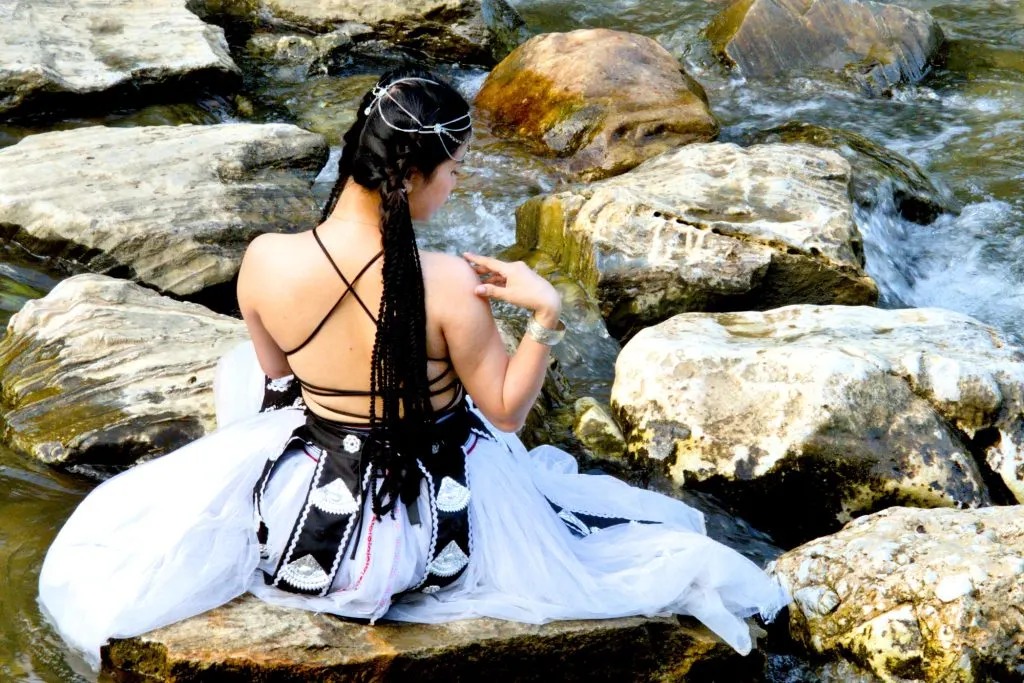
We sat down at one of the stores to quench our thirst with sugarcane water and coconut juice. The weather was quite warm, and we were a little tired.
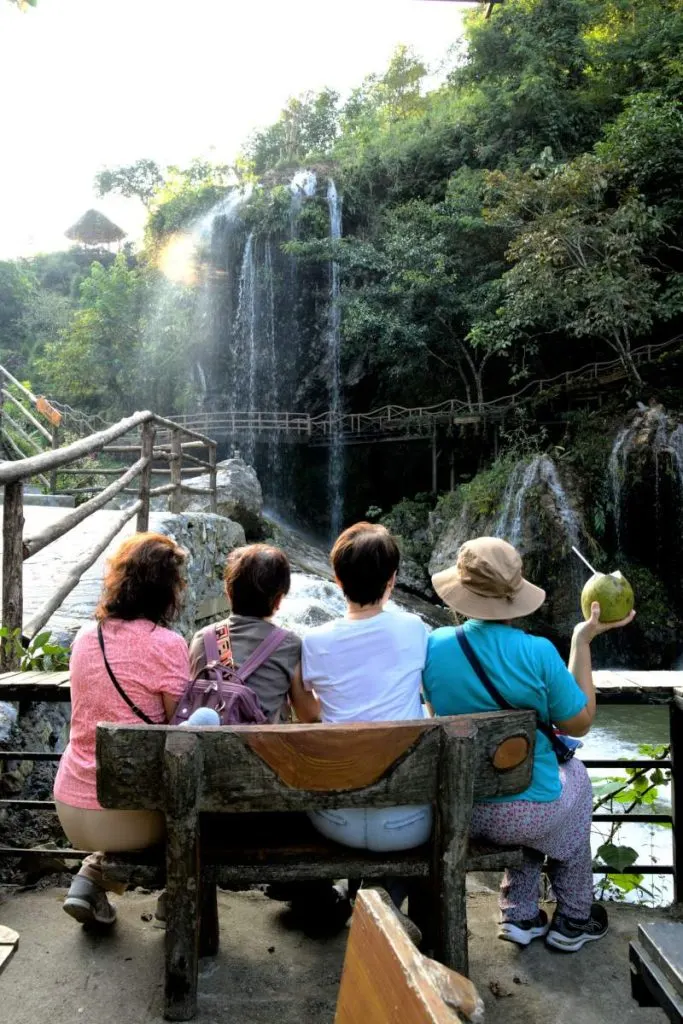
Despite its commercialization, Cat Cat Village is still one of the must-see attractions in Sapa due to its picturesque surroundings.
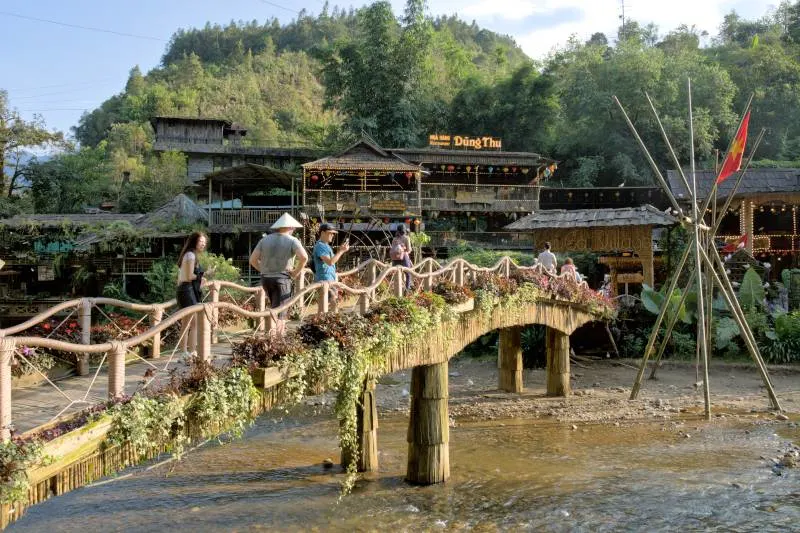
We left Cat Cat Village and went back to the hotel. The following day, we were told the village was temporarily closed due to the typhoon. We were very fortunate to be able to change our itinerary and visit the village in the afternoon on the same day we visited Fansipan.
Night of Sapa
We returned to our hotel, took a short break, and walked about 10 minutes to reach the town of Sapa to have dinner at one of the local restaurants. After that, we walked around the Sapa Center to take in the night scene of Sapa.
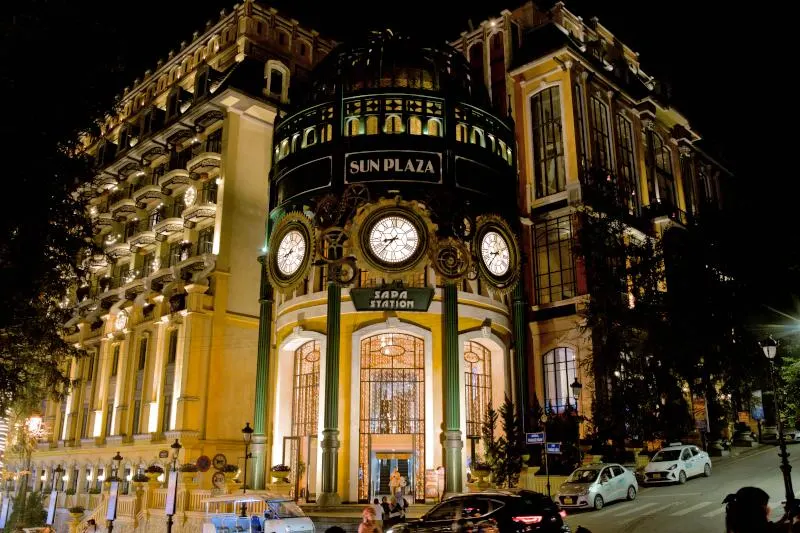
The town is one of the attractions in Sapa as it has a vibrant vibe with well-lighted buildings, including the Sapa Stone Church and Sun Plaza.
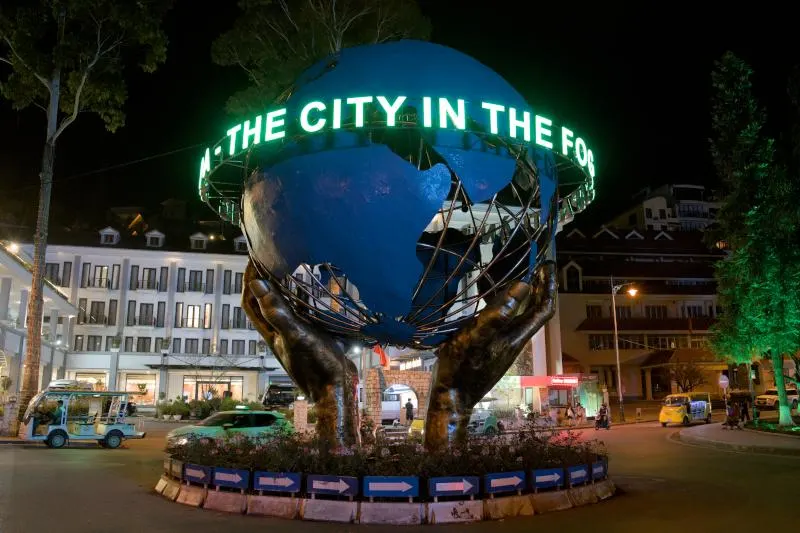
From what I understand, Sapa was initially a small village that has grown into a vibrant tourist center due to the influx of tourists. As a tourist town, there are many eateries and shops for tourists. We even encountered someone playing a live flute performance.
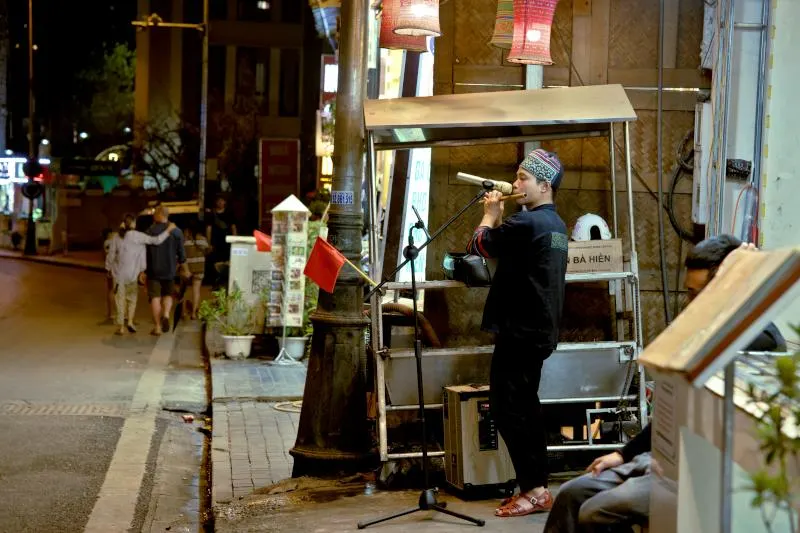
Sapa Market
The following day, we visited the Sapa Market, similar to the Dong Xuan market in Hanoi. However, it is also a place for locals to shop, not just for tourists. In addition to the section selling souvenirs, clothes, and nuts for tourists, there is also a wet market where locals can purchase vegetables, meat, and household items.
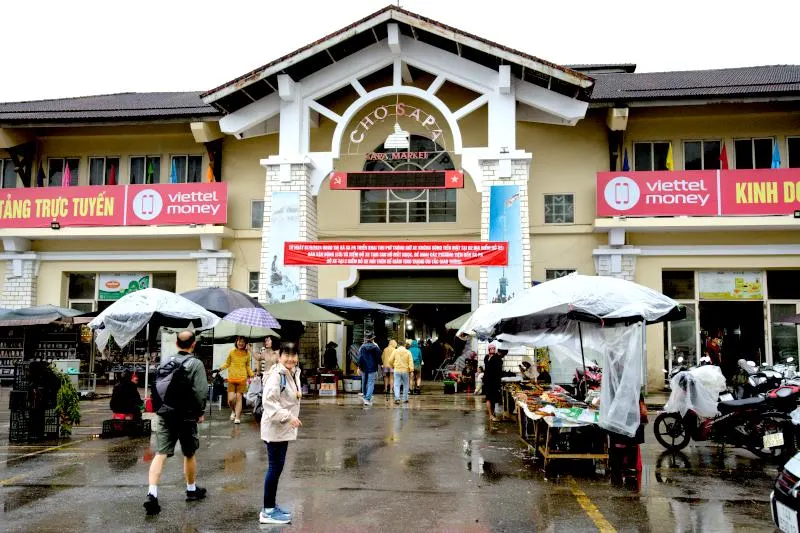
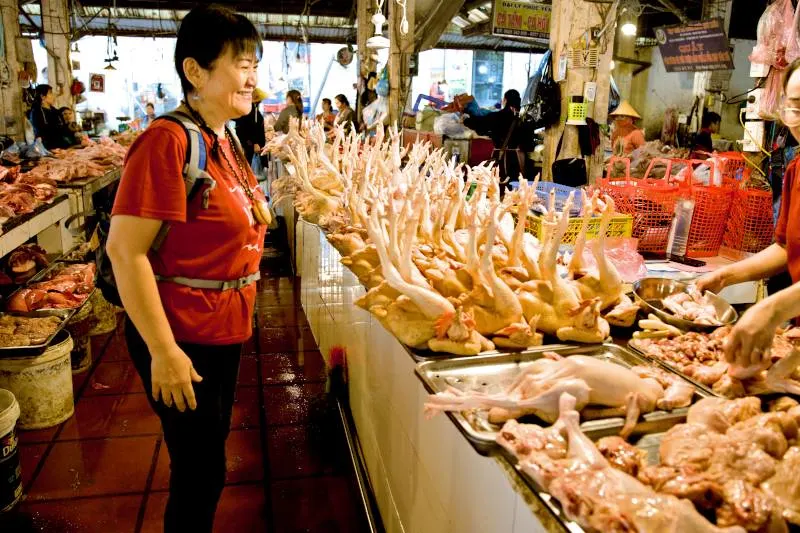
After visiting the market, we headed back to Hanoi. That's all the must-see attractions in Sapa that we can visit during our overnight stay due to the long distance of traveling from Hanoi. It had been raining since early in the morning and continued throughout our return journey. In the evening, the Yagi Typhoon hit the center of Hanoi.
Due to the strong winds, we had to cancel all our shopping plans in Hanoi and stay in the hotel. We had dinner there and rested in the hotel from 4 pm until night. Please continue reading our story in Hanoi by reading our Hanoi story here.
🎞️ Watch the video shot during our trip
Please watch the video we made for our trip on YouTube. As below:
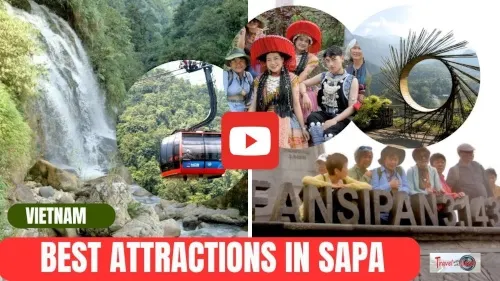

KP
Wednesday 25th of September 2024
Hey, I’m KP. If you have any questions about our itinerary and our story in Hanoi, please leave your comment here, and I’ll be glad to reply.